Honors Faculty Fellows
Roles and Responsibilities of Honors College Faculty Fellows
(A) Honors Faculty Fellows will meet the following expectations:
- Serve as mentors to senior Honors Scholars in preparation for their Senior Thesis;
- Assist with career counseling/mentoring for Honors College Scholars in their departments or related departments;
- Promote the Honors College before potential students, potential benefactors, and other publics;
- Assists the Honors College with writing grant proposals.
(B) Benefits to fellows for their contributions to students and the Honors College include:
- The opportunity to help some of the most intellectually gifted students on campus to graduate and become leaders locally, nationally, and globally;
- Assistance from Honors College scholars in their research, creative, professional and service projects;
Current Honors Faculty Fellows
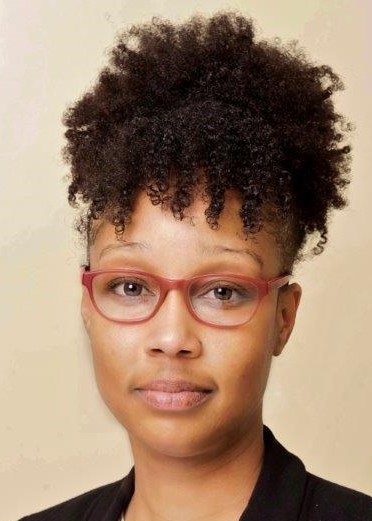 Dr. Tanya Allen is Assistant Professor of Music Education at Texas Southern University.
Prior to joining the faculty in the fall of 2016, she observed and evaluated alternative
certification teachers and provided music instruction to public school students. She
completed her Master’s and Doctorate degree in Music Education at Florida State University
and her undergraduate degree and teacher certification at the University of New Orleans.
Dr. Tanya Allen is Assistant Professor of Music Education at Texas Southern University.
Prior to joining the faculty in the fall of 2016, she observed and evaluated alternative
certification teachers and provided music instruction to public school students. She
completed her Master’s and Doctorate degree in Music Education at Florida State University
and her undergraduate degree and teacher certification at the University of New Orleans.
While her primary responsibilities at TSU include music education courses and observing preservice music teachers, she also enjoys instructing non-music majors and cultivating relationships with public school educators. Besides effectively utilizing technology in all aspects of education, her interests include open educational resources and practices in higher education and effective teacher training. She is an active member of several organizations including the Association for Technology in Music Instruction and the Association of Teacher Educators.
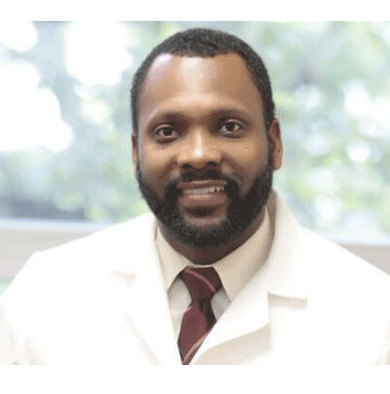 Dr. Willie Capers II, is the Interim Assistant Dean of Student Services and Assistant
Professor of Pharmacy Practice at Texas Southern University College of Pharmacy and
Health Sciences where he is responsible for simulation labs and experiential education
faculty development and affiliate relations for clinical laboratory science, environmental
health, health administration, health information management, pharmacy, and respiratory
therapy programs.
Dr. Willie Capers II, is the Interim Assistant Dean of Student Services and Assistant
Professor of Pharmacy Practice at Texas Southern University College of Pharmacy and
Health Sciences where he is responsible for simulation labs and experiential education
faculty development and affiliate relations for clinical laboratory science, environmental
health, health administration, health information management, pharmacy, and respiratory
therapy programs.
Prior to academia, he held leadership, management, and clinical positions in large community hospitals and academic medical centers. He is a founding PGY1 Residency Program Director and has taught pharmacy residents and students for over 10 years. He earned his MBA from Arkansas State University and PharmD from Texas Southern University. He completed his PGY1 and PGY2 in Health-System Pharmacy Administration residencies at Aurora Health Care in Milwaukee, Wisconsin.
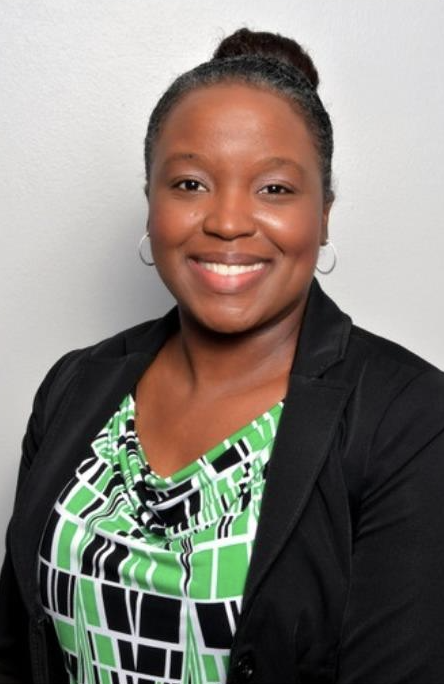 Dr. Erica Cassimere is an Assistant Professor of Biology in the College of Science,
Engineering and Technology. A native of Baltimore, Maryland, Dr. Cassimere earned
her Bachelor of Science degree in Biology with honors from the University of Maryland-Eastern
Shore (Princess Anne, MD). She later received a Ph.D. in Medicinal Chemistry and Molecular
Pharmacology from Purdue University (West Lafayette, IN), where her research in cancer
cell biology was supported by the National Institutes of Health (NIH) Ruth L. Kirschstein
Pre-Doctoral Fellowship. She continued extensive postdoctoral training in breast cancer
research at the University of Texas Health Science Center at Houston (UT Health),
where her work was supported by the Susan G. Komen foundation. Her research focused
on the role of tumor suppressors on cancer inhibition in response to DNA damaging
agents. Since 2013, Dr. Cassimere has been teaching general biology and cell biology
courses at Texas Southern University. She also serves as an academic advisor and coordinates
the introductory biology labs. Her current research interests focus on investigating
the molecular mechanisms of cell cycle regulatory proteins that regulate various activities
in breast cancer.
Dr. Erica Cassimere is an Assistant Professor of Biology in the College of Science,
Engineering and Technology. A native of Baltimore, Maryland, Dr. Cassimere earned
her Bachelor of Science degree in Biology with honors from the University of Maryland-Eastern
Shore (Princess Anne, MD). She later received a Ph.D. in Medicinal Chemistry and Molecular
Pharmacology from Purdue University (West Lafayette, IN), where her research in cancer
cell biology was supported by the National Institutes of Health (NIH) Ruth L. Kirschstein
Pre-Doctoral Fellowship. She continued extensive postdoctoral training in breast cancer
research at the University of Texas Health Science Center at Houston (UT Health),
where her work was supported by the Susan G. Komen foundation. Her research focused
on the role of tumor suppressors on cancer inhibition in response to DNA damaging
agents. Since 2013, Dr. Cassimere has been teaching general biology and cell biology
courses at Texas Southern University. She also serves as an academic advisor and coordinates
the introductory biology labs. Her current research interests focus on investigating
the molecular mechanisms of cell cycle regulatory proteins that regulate various activities
in breast cancer.
 Dr. Cavil is a prominent voice on the business and leadership of Historically Black
Colleges and Universities (HBCUs) and a specialist on the HBCU Sports Culture paradigm.
He is the author of Early Athletic Experiences at HBCUs: The Creation of Conferences.
From an Africana-centered framework of HBCU athletics, he teaches about consumer behavior
in HBCU athletics, strategic management, vision and leadership in HBCU athletic programs,
and the contextualization of critical race theory in the Sporting HBCU Diaspora. He
has published research articles such as The State of Intercollegiate Athletics at
Historically Black Colleges/Universities (HBCUs): Past, Present, & Persistence, completed
commission studies such as, HBCU (A Minimum of Nine, A Maximum of 12) Football Reclassification
& New HBCU FBS Conference Formation Study, presentations such as, Athletic Director’s
Leadership Perception of Variable Determining the Effectiveness of Administering HBCU
Athletic Programs, and a book chapter titled: The Case for Tennessee State as an expansion
member of the SWAC: Economic Impact. Dr. Cavil has written articles for College Sporting
News (CSN) and I-AA.org magazines. Recently, Cavil was also one of the four authors
among Billy Hawkins, Joseph Cooper, and Akilah Carter-Francique which edited the textbook
The Athletic Experience at Historically Black Colleges and Universities – Past, Present,
and Persistence. He currently produces Dr. Cavil’s HBCU Sports Top 10 Mid-Major and
Major Polls as well as the Dr. Cavil’s ‘Inside the HBCU Sports Lab” radio show. He
is a HBCU sport business analyst on several radio programs across the country with
the HBCU Sports Report.
Dr. Cavil is a prominent voice on the business and leadership of Historically Black
Colleges and Universities (HBCUs) and a specialist on the HBCU Sports Culture paradigm.
He is the author of Early Athletic Experiences at HBCUs: The Creation of Conferences.
From an Africana-centered framework of HBCU athletics, he teaches about consumer behavior
in HBCU athletics, strategic management, vision and leadership in HBCU athletic programs,
and the contextualization of critical race theory in the Sporting HBCU Diaspora. He
has published research articles such as The State of Intercollegiate Athletics at
Historically Black Colleges/Universities (HBCUs): Past, Present, & Persistence, completed
commission studies such as, HBCU (A Minimum of Nine, A Maximum of 12) Football Reclassification
& New HBCU FBS Conference Formation Study, presentations such as, Athletic Director’s
Leadership Perception of Variable Determining the Effectiveness of Administering HBCU
Athletic Programs, and a book chapter titled: The Case for Tennessee State as an expansion
member of the SWAC: Economic Impact. Dr. Cavil has written articles for College Sporting
News (CSN) and I-AA.org magazines. Recently, Cavil was also one of the four authors
among Billy Hawkins, Joseph Cooper, and Akilah Carter-Francique which edited the textbook
The Athletic Experience at Historically Black Colleges and Universities – Past, Present,
and Persistence. He currently produces Dr. Cavil’s HBCU Sports Top 10 Mid-Major and
Major Polls as well as the Dr. Cavil’s ‘Inside the HBCU Sports Lab” radio show. He
is a HBCU sport business analyst on several radio programs across the country with
the HBCU Sports Report.
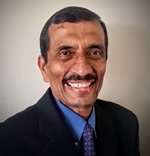 Dr. Mayur S. Desai is the Associate Dean for Academic Affairs and Research/MIS and
Professor of Management Information Systems at the Jesse H. Jones School of Business
at Texas Southern University. He has 15+ years of industry and 20+ years of academic
experience. While at Indiana University Kokomo for nine years he received excellence
in teaching awards, established an e-business lab, served as a webmaster for the school
of business, was involved in promoting the MBA program, wrote research grants, and
developed database applications for the city of Kokomo. His research involves outsourcing
strategies, information technology ethics, end-user development, curriculum, assessment,
student enrollment development, e-commerce, and systems security. Dr. Desai, an award-winning
researcher, has published several refereed articles and presented papers at professional
conferences. Dr. Desai holds a Ph.D. in Business Computers Information Systems from
the University of North Texas, an MBA from Hardin-Simmons University, an MS in Electrical
Engineering from Texas A & M University–Kingsville, and a BE in electrical engineering
from the University of Bombay.
Dr. Mayur S. Desai is the Associate Dean for Academic Affairs and Research/MIS and
Professor of Management Information Systems at the Jesse H. Jones School of Business
at Texas Southern University. He has 15+ years of industry and 20+ years of academic
experience. While at Indiana University Kokomo for nine years he received excellence
in teaching awards, established an e-business lab, served as a webmaster for the school
of business, was involved in promoting the MBA program, wrote research grants, and
developed database applications for the city of Kokomo. His research involves outsourcing
strategies, information technology ethics, end-user development, curriculum, assessment,
student enrollment development, e-commerce, and systems security. Dr. Desai, an award-winning
researcher, has published several refereed articles and presented papers at professional
conferences. Dr. Desai holds a Ph.D. in Business Computers Information Systems from
the University of North Texas, an MBA from Hardin-Simmons University, an MS in Electrical
Engineering from Texas A & M University–Kingsville, and a BE in electrical engineering
from the University of Bombay.
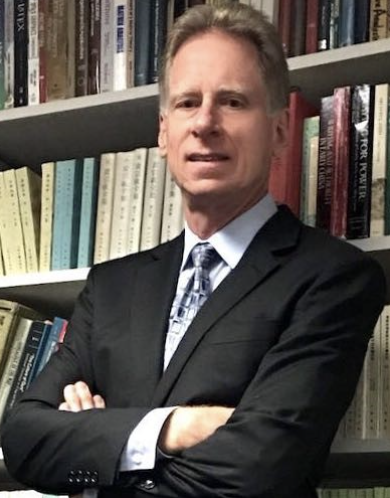 Dr. Roger Hart is the Director of the China Center and an Associate Professor in the
Department of History and Geography at Texas Southern University. He received his
Ph.D. from the Department of History, University of California-LA, his M.S. from Stanford
University in Mathematics, and a B.S. from the Massachusetts Institute of Technology
in Mathematics. Dr. Hart spent a total of six years teaching, studying, and researching
in China. He has received numerous fellowships from the American Council of Learned
Societies (ACLS), the National Endowment for the Humanities (NEH), and the Andrew
W. Mellon Foundation. Dr. Hart’s previous appointments include Seoul National University,
the University of Texas at Austin, the University of Chicago, the Institute for Advanced
Study (Princeton), Stanford University, the University of California at Berkeley,
and Harvard University. Dr. Hart is also the author of “The Chinese Roots of Linear
Algebra” (Johns Hopkins University Press, 2010) and “Imagined Civilizations: China,
the West, and Their First Encounter” (Johns Hopkins University Press, 2013).
Dr. Roger Hart is the Director of the China Center and an Associate Professor in the
Department of History and Geography at Texas Southern University. He received his
Ph.D. from the Department of History, University of California-LA, his M.S. from Stanford
University in Mathematics, and a B.S. from the Massachusetts Institute of Technology
in Mathematics. Dr. Hart spent a total of six years teaching, studying, and researching
in China. He has received numerous fellowships from the American Council of Learned
Societies (ACLS), the National Endowment for the Humanities (NEH), and the Andrew
W. Mellon Foundation. Dr. Hart’s previous appointments include Seoul National University,
the University of Texas at Austin, the University of Chicago, the Institute for Advanced
Study (Princeton), Stanford University, the University of California at Berkeley,
and Harvard University. Dr. Hart is also the author of “The Chinese Roots of Linear
Algebra” (Johns Hopkins University Press, 2010) and “Imagined Civilizations: China,
the West, and Their First Encounter” (Johns Hopkins University Press, 2013).
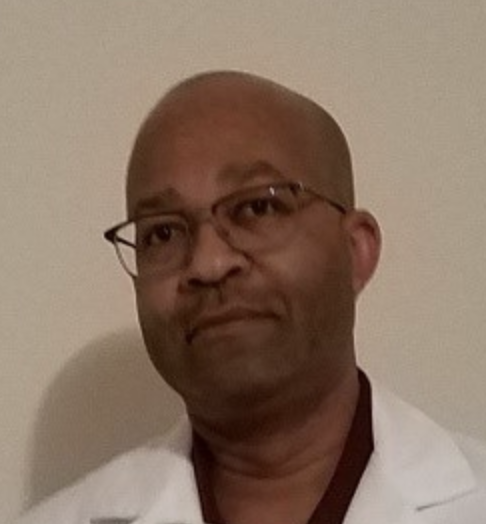 Dr. Mario Hollomon received his Bachelor of Science degree in Biology from Prairie
View A&M University. He obtained his Ph.D. from Texas Southern University. After obtaining
his Ph.D., Dr. Hollomon served as a postdoctoral fellow at The University of Texas
MD Anderson Cancer Center in the departments of immunology and pediatrics. Dr. Hollomon
joined the department of biology as a tenure-track Assistant Professor in 2014. Dr.
Hollomon is currently an Associate Professor in the department of biology. Dr. Hollomon’s
research focuses on the role of autophagy on cancer cell tolerance to anticancer treatment.
Dr. Hollomon’s research also focuses on the non-apoptotic functions of FADD in osteosarcoma.
Dr. Hollomon is currently expanding his research interest to the field of redox transcription
factors and their role in cancer cell development and tolerance to anticancer treatment.
Dr. Hollomon is currently collaborating with researchers here at Texas Southern University
and the University of Texas MD Anderson Cancer Center.
Dr. Mario Hollomon received his Bachelor of Science degree in Biology from Prairie
View A&M University. He obtained his Ph.D. from Texas Southern University. After obtaining
his Ph.D., Dr. Hollomon served as a postdoctoral fellow at The University of Texas
MD Anderson Cancer Center in the departments of immunology and pediatrics. Dr. Hollomon
joined the department of biology as a tenure-track Assistant Professor in 2014. Dr.
Hollomon is currently an Associate Professor in the department of biology. Dr. Hollomon’s
research focuses on the role of autophagy on cancer cell tolerance to anticancer treatment.
Dr. Hollomon’s research also focuses on the non-apoptotic functions of FADD in osteosarcoma.
Dr. Hollomon is currently expanding his research interest to the field of redox transcription
factors and their role in cancer cell development and tolerance to anticancer treatment.
Dr. Hollomon is currently collaborating with researchers here at Texas Southern University
and the University of Texas MD Anderson Cancer Center.
 Dr. Iris M. Lancaster earned her Ph.D. from Texas A&M-Commerce in 2009. Her dissertation
analyzes the cultural metaphor in Zora Neale Hurston’s Their Eyes Were Watching God.
Since receiving her PhD, she has written: “Nanny, Signifying Empowerment: The Evolution
of the Dispirited Black Woman in Zora Neale Hurston’s Their Eyes Were Watching God”
published in Cultural Intertexts - Academic Journal of Literary Studies; Queen Sugar:
A Book Review published in the CLA Journal; and “The Rose that Grew from a Legacy
of Hope: A Study of Tupac Shakur’s Poetry” published in THE GRIOT: The Journal of
African American Studies.
Dr. Iris M. Lancaster earned her Ph.D. from Texas A&M-Commerce in 2009. Her dissertation
analyzes the cultural metaphor in Zora Neale Hurston’s Their Eyes Were Watching God.
Since receiving her PhD, she has written: “Nanny, Signifying Empowerment: The Evolution
of the Dispirited Black Woman in Zora Neale Hurston’s Their Eyes Were Watching God”
published in Cultural Intertexts - Academic Journal of Literary Studies; Queen Sugar:
A Book Review published in the CLA Journal; and “The Rose that Grew from a Legacy
of Hope: A Study of Tupac Shakur’s Poetry” published in THE GRIOT: The Journal of
African American Studies.
Currently, Dr. Lancaster is writing a chapter on the writings of Tupac Shakur for Reading Between the Lines: A Genealogy of Racial Discourse in American Literature from the 17th Century to the Present (A Critical Collection). Since 2004, Dr. Lancaster has taught several classes. American Literature, World Literature, Women's Literature, Graduate Writing Seminars, Studies in Literary Biography and Non-Fiction, Literature and Film, and African American Fiction. The courses Dr. Lancaster enjoys teaching the most are the Honors English 1301 and 1302 courses. Her teaching philosophy reflects her interest in collaborative authorship. Instead of the “sage on the stage” teaching method, she prefers student-centered teaching that encourages learning by both students and teachers. She favors classroom dynamics that permit dialogue and foster a degree of student input. Also, she supports students thinking about the class as a community. The students spend a fair amount of time in smaller groups in which they talk, think and write together. Her teaching philosophy fits the Honors student dynamic well because these students are excited to learn about writing, and they are ready to work in a collaborative setting. In the Honors English courses, collaborative work is strongly encouraged. Honors students are ready to share their ideas and their insights, so the coursework is structured to foster this type of learning environment. In Honors courses, special attention is given to the six core levels of Bloom’s Taxonomy: Knowledge, Comprehension, Application, Analysis, Synthesis, and Evaluation. Students are taught these various levels and then asked to connect each level to the various assignments. The pace is rigorous, but steady, and the students enjoy being challenged at every level.
For Dr. Lancaster, teaching the Honors’ students is more than a privilege; it is a joy!
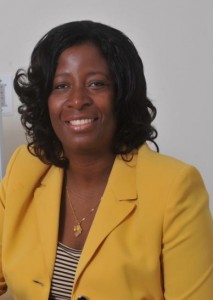 Oluponmile Olonilua, Ph.D. is a Professor in the Department of Political Science at
the Barbara Jordan-Mickey Leland School of Public Affairs at Texas Southern University.
She earned her Doctor of Philosophy degree in Urban Planning and Environmental Policy
from Texas Southern University and made history as the first graduate of the program.
She also received her Master of Public Administration degree from Texas Southern University
and her Bachelor of Arts degree in English Studies from the Obafemi Awolowo University,
Ile Ife, Nigeria. Currently, she is the coordinator for the Emergency Management and
Homeland Security degree program at Texas Southern University. She is a certified
floodplain manager (CFM).
Oluponmile Olonilua, Ph.D. is a Professor in the Department of Political Science at
the Barbara Jordan-Mickey Leland School of Public Affairs at Texas Southern University.
She earned her Doctor of Philosophy degree in Urban Planning and Environmental Policy
from Texas Southern University and made history as the first graduate of the program.
She also received her Master of Public Administration degree from Texas Southern University
and her Bachelor of Arts degree in English Studies from the Obafemi Awolowo University,
Ile Ife, Nigeria. Currently, she is the coordinator for the Emergency Management and
Homeland Security degree program at Texas Southern University. She is a certified
floodplain manager (CFM).
Dr Olonilua’s research interests include hazard mitigation/emergency management, diversity, equity, and inclusion planning, land use planning, evaluation planning, environmental planning, and policy and community development and public participation. Her research is in several journals including the Journal of Emergency Management, Journal of Risks, Hazards, Crisis and Public Policy, and Journal of Security, Intelligence and Resilience Education, among others. She co-chairs the Mary Fran Myers Scholarship award for the Natural Hazards Workshop, an award she received herself in 2009. She served as the Continuing Education Credit Coordinator for the Natural Hazards Workshop until 2020. Also, she is a Board Member of the Natural Hazards Mitigation Association and a member of the Texas Floodplain Managers Association.
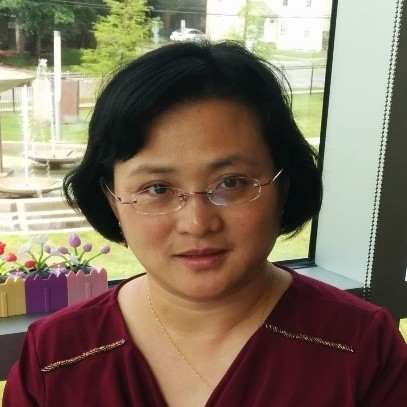 Dr. Yi Qi is the Chair of the Transportation Studies Department and Professor at the
Texas Southern University. Her research areas include transportation air quality analysis,
Intelligent Transportation Systems (ITS), system performance assessment, roadway geometric
design, and transportation safety. As a prolific scholar, she has served as the principal
investigator and directed more than 20 externally funded projects sponsored by various
federal and local governments. She has over 30 publications in Science Citation Index
(SCI) journals, along with more than 50 conference proceeding papers and numerous
technical report publications. Dr. Qi is a nationally recognized scholar and has been
appointed onto two Transportation Research Board (TRB) committees. She received her
Ph.D. in Transportation Planning and Engineering from New York University -Polytechnic
Institution.
Dr. Yi Qi is the Chair of the Transportation Studies Department and Professor at the
Texas Southern University. Her research areas include transportation air quality analysis,
Intelligent Transportation Systems (ITS), system performance assessment, roadway geometric
design, and transportation safety. As a prolific scholar, she has served as the principal
investigator and directed more than 20 externally funded projects sponsored by various
federal and local governments. She has over 30 publications in Science Citation Index
(SCI) journals, along with more than 50 conference proceeding papers and numerous
technical report publications. Dr. Qi is a nationally recognized scholar and has been
appointed onto two Transportation Research Board (TRB) committees. She received her
Ph.D. in Transportation Planning and Engineering from New York University -Polytechnic
Institution.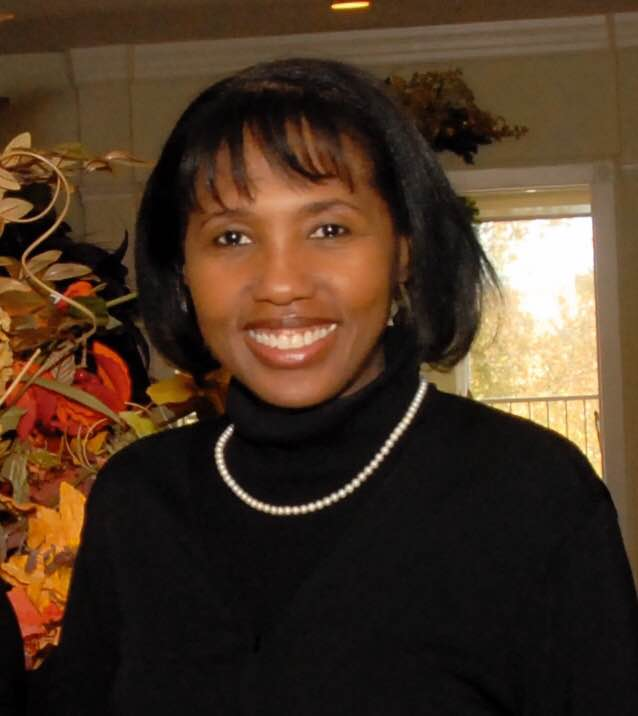 Dr. Monica L. Rasmus is the Director of the Program in Health Administration and an
Assistant Professor in the College of Pharmacy and Health Sciences. Her research focuses
on healthcare quality and access, health disparities, research for the betterment
of the public’s health, and curriculum development for and impediments to student
success. Dr. Rasmus has mentored and supervised many students on their research projects
and has received several awards from TSU’s Research Week, including the 2016 first-place
award for Faculty Presentation (along with co-presenter, Dr. Renard Thomas). She received
her Bachelor of Science degree in Biology from Baylor University, her Master of Education
from the University of Houston, her Master of Business Administration degree from
Texas Woman’s University, and her Master and Doctor of Public Health degrees from
the University of Texas Health Science Center at Houston School of Public Health.
Dr. Monica L. Rasmus is the Director of the Program in Health Administration and an
Assistant Professor in the College of Pharmacy and Health Sciences. Her research focuses
on healthcare quality and access, health disparities, research for the betterment
of the public’s health, and curriculum development for and impediments to student
success. Dr. Rasmus has mentored and supervised many students on their research projects
and has received several awards from TSU’s Research Week, including the 2016 first-place
award for Faculty Presentation (along with co-presenter, Dr. Renard Thomas). She received
her Bachelor of Science degree in Biology from Baylor University, her Master of Education
from the University of Houston, her Master of Business Administration degree from
Texas Woman’s University, and her Master and Doctor of Public Health degrees from
the University of Texas Health Science Center at Houston School of Public Health.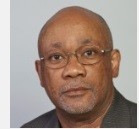 Dr. Ayodotun Sodipe is an Associate Professor in the Department of Biology. He received
his Ph.D. in Environmental Toxicology in 2008 and a B.S. in Biology in 1990, from
Texas Southern University. Dr. Sodipe has developed and teaches courses in “Biological
Sciences” at TSU at both undergraduate and graduate levels where he includes: "Literature
review and its interpretations" (BIOL 795) and "Preparation and presentation of projects
reports" (BIOL 499). He also serves as an advisor to the large population of Pre-Health
professionals and undergraduate students. His areas of research are Mycology and Forensic
Biology. Dr. Sodipe has published several articles and serves as a reviewer for several
journals including NASA EPSCOR and NSF. He is an active member of the College of Science
Engineering and Technology Research Committee.
Dr. Ayodotun Sodipe is an Associate Professor in the Department of Biology. He received
his Ph.D. in Environmental Toxicology in 2008 and a B.S. in Biology in 1990, from
Texas Southern University. Dr. Sodipe has developed and teaches courses in “Biological
Sciences” at TSU at both undergraduate and graduate levels where he includes: "Literature
review and its interpretations" (BIOL 795) and "Preparation and presentation of projects
reports" (BIOL 499). He also serves as an advisor to the large population of Pre-Health
professionals and undergraduate students. His areas of research are Mycology and Forensic
Biology. Dr. Sodipe has published several articles and serves as a reviewer for several
journals including NASA EPSCOR and NSF. He is an active member of the College of Science
Engineering and Technology Research Committee.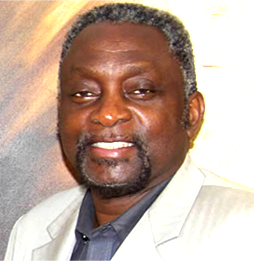 Dr. Chris Chinwe Ulasi is Professor and Chair of the Radio Television and Film (RTF)
department and the Coordinator for the Entertainment and Recording Industry Management
program, in the School of Communication. Dr. Ulasi has been a professional communicator,
scholar, and researcher for over twenty-eight years. He is a screenwriter, producer,
and poet. From 1993-1996 he was journal editor and book editor of the Journal of Nigerian
Affairs (formerly CONPO REVIEW). He is the Executive Editor of USAfrica, a community
newspaper, and The Black Business Journal, both based in Houston. Dr. Ulasi has published
scholarly articles, and book chapters, and presented papers at numerous conferences.
He has been a consultant on International Communication and Development for the International
Education Foundation in Austin, Texas. Since 1988, he has taught courses in media,
culture, and society, international communication, screenwriting, film theory, media
aesthetics, and media criticism at Texas Southern University’s School of Communication.
Ulasi holds a B.Sc. in Mass Communications, an MA in Telecommunication Policy and
Administration, and a Ph.D. from the University of Texas at Austin in International
Communications. Dr. Ulasi has also served as a Graduate Studies Advisor in the School
of Communication.
Dr. Chris Chinwe Ulasi is Professor and Chair of the Radio Television and Film (RTF)
department and the Coordinator for the Entertainment and Recording Industry Management
program, in the School of Communication. Dr. Ulasi has been a professional communicator,
scholar, and researcher for over twenty-eight years. He is a screenwriter, producer,
and poet. From 1993-1996 he was journal editor and book editor of the Journal of Nigerian
Affairs (formerly CONPO REVIEW). He is the Executive Editor of USAfrica, a community
newspaper, and The Black Business Journal, both based in Houston. Dr. Ulasi has published
scholarly articles, and book chapters, and presented papers at numerous conferences.
He has been a consultant on International Communication and Development for the International
Education Foundation in Austin, Texas. Since 1988, he has taught courses in media,
culture, and society, international communication, screenwriting, film theory, media
aesthetics, and media criticism at Texas Southern University’s School of Communication.
Ulasi holds a B.Sc. in Mass Communications, an MA in Telecommunication Policy and
Administration, and a Ph.D. from the University of Texas at Austin in International
Communications. Dr. Ulasi has also served as a Graduate Studies Advisor in the School
of Communication.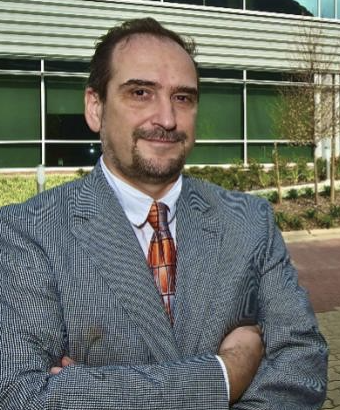 Dr. Daniel Vrinceanu is a professor of Physics in the College of Science, Engineering
and Technology. After obtaining his doctoral degree in Theoretical Atomic Physics
from the Georgia Institute of Technology, he engaged in research at the Institute
for Theoretical Atomic and Molecular Physics at the Harvard-Smithsonian Center for
Astrophysics and Los Alamos National Laboratory. His research focuses on matter under
extreme conditions by using a range of theoretical and computational approaches, including
Machine Learning and Artificial Intelligence. Dr. Vrinceanu serves as the director
of the High Performance ComputingCenter at TSU, managing computational resources and
offering training and workshops to TSU researchers.
Dr. Daniel Vrinceanu is a professor of Physics in the College of Science, Engineering
and Technology. After obtaining his doctoral degree in Theoretical Atomic Physics
from the Georgia Institute of Technology, he engaged in research at the Institute
for Theoretical Atomic and Molecular Physics at the Harvard-Smithsonian Center for
Astrophysics and Los Alamos National Laboratory. His research focuses on matter under
extreme conditions by using a range of theoretical and computational approaches, including
Machine Learning and Artificial Intelligence. Dr. Vrinceanu serves as the director
of the High Performance ComputingCenter at TSU, managing computational resources and
offering training and workshops to TSU researchers.